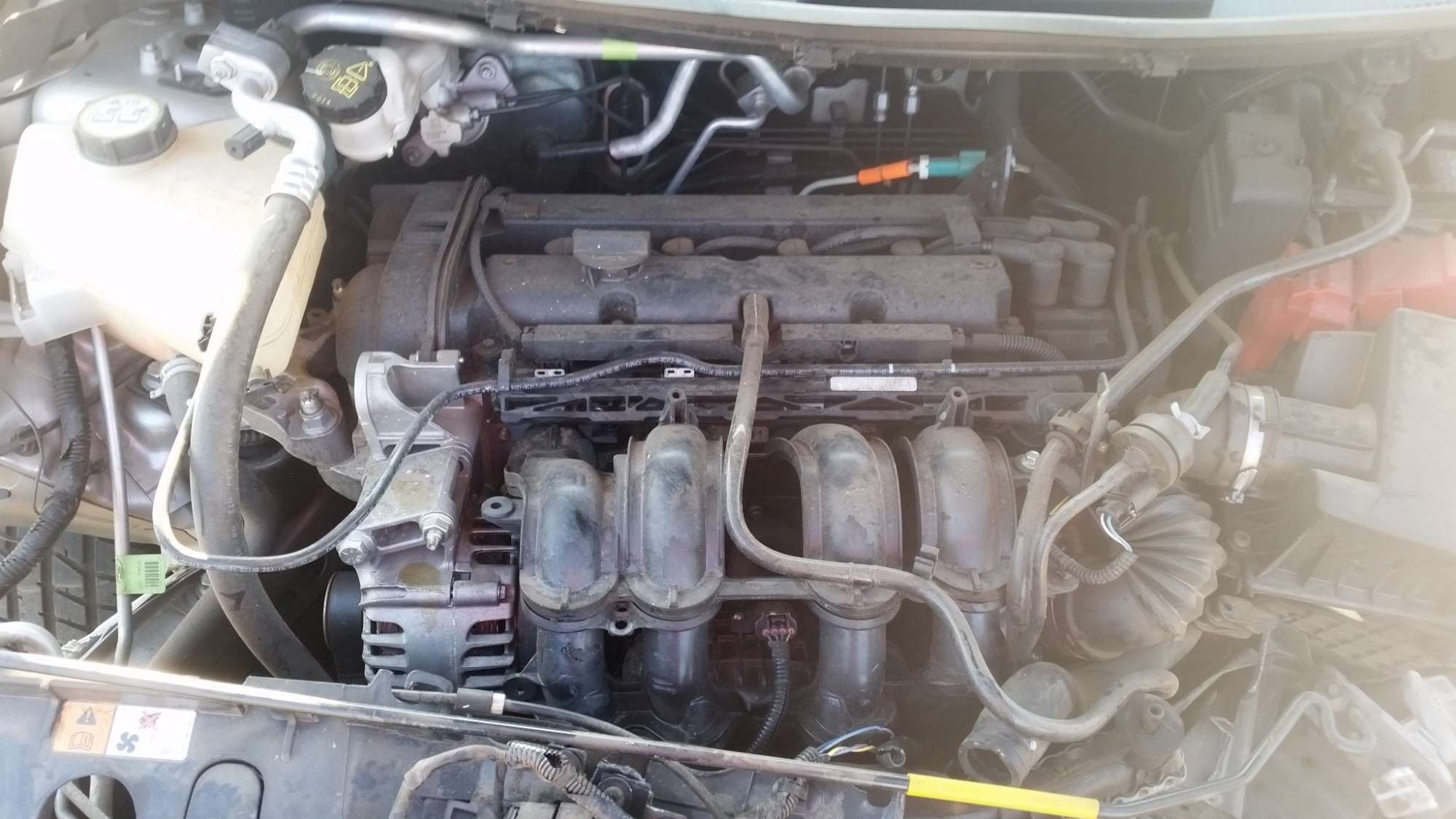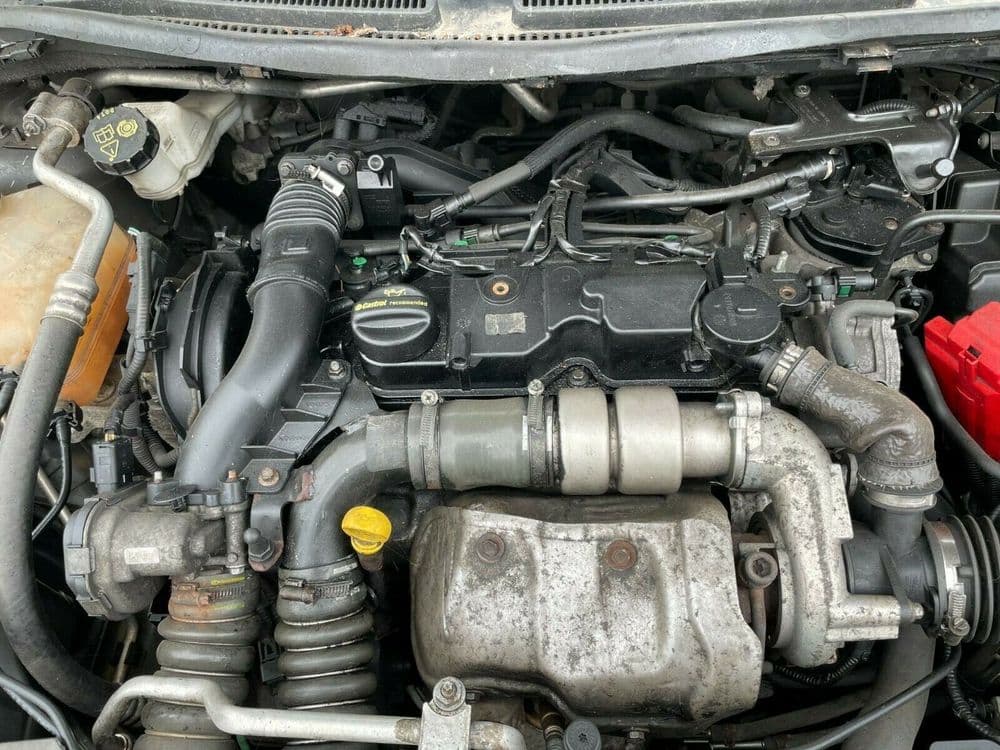How a Ford Fiesta Engine Tune-Up Can Improve Your Car’s Performance
How a Ford Fiesta Engine Tune-Up Can Improve Your Car’s Performance
Blog Article
The Future of Engines: Technologies Driving Sustainable Power Solutions
As the automotive market navigates the necessary transition in the direction of sustainability, the future of engines is progressively specified by groundbreaking technologies. Electric engine improvements, alongside appealing growths in hydrogen fuel cells and biofuels, are reshaping the landscape of power remedies.
Electric Engine Developments
The advancement of electric engine growths indicates a crucial change in the automobile and aerospace markets, driven by the immediate demand for lasting alternatives to fossil fuels. This change is identified by substantial innovations in battery modern technology, power electronic devices, and electrical motor layout, which jointly enhance the performance and performance of electric engines.
Current developments have actually caused the creation of lighter, more energy-dense batteries, such as lithium-silicon and solid-state batteries, which guarantee longer ranges and shorter billing times. In addition, renovations in electric motor effectiveness, such as using permanent magnets and advanced cooling down systems, enable electric engines to operate properly under varying conditions. These improvements not just improve automobile performance but also add to a decrease in total energy usage.
In addition, the integration of innovative software algorithms has actually maximized power monitoring in electrical cars, enabling regenerative stopping and anticipating charging techniques. As producers progressively embrace electric propulsion, the aerospace and auto fields are witnessing a standard shift towards greener innovations. This advancement not just satisfies regulative demands yet additionally straightens with consumer choices for environmentally friendly transport solutions, solidifying electric engines as a cornerstone of future sustainable mobility.
Improvements in Biofuels
As the automobile and aerospace sectors progressively prioritize lasting power resources, improvements in biofuels emerge as a complementary option to electric engines. Biofuels, stemmed from organic materials such as crops, waste, and algae, provide a cutting-edge opportunity for lowering greenhouse gas exhausts and dependence on nonrenewable fuel sources.
Recent research has concentrated on improving the effectiveness and sustainability of biofuel manufacturing. Second-generation biofuels make use of non-food feedstocks, lessening competition with food supply and lowering environmental effect. Innovations in artificial biology have enabled the design of microbes to produce biofuels extra successfully, leading to higher yields and reduced manufacturing prices.
Additionally, the advancement of drop-in biofuels permits seamless assimilation into existing infrastructure, allowing a smoother shift for markets commonly based on fossil fuels. ford fiesta engine. These gas can be used in present engines without modifications, promoting their fostering across numerous fields
Investments in biofuel technology, in addition to supportive plans, are necessary to drive technology and scalability. As the worldwide neighborhood seeks to deal with climate modification, biofuels offer a practical, immediate option that aligns with the overarching goal of sustainability in transportation and aeronautics.
Hydrogen Fuel Cell Modern Technology
An expanding variety of researchers and business are discovering hydrogen fuel cell technology as a practical choice to conventional source of power in transport and power systems. This innovation transforms chemical energy from hydrogen into electrical energy through an electrochemical reaction, with water as the only byproduct, making it an eco friendly choice.
The core of hydrogen gas cells is the gas cell stack, where hydrogen molecules are split right into electrons and protons. The circulation of electrons creates power, while protons move via a membrane to combine with oxygen from the visit their website air, developing water. This procedure why not try these out leads to high efficiency and reduced emissions, placing hydrogen fuel cells as a critical gamer in the shift to sustainable energy.
Substantial improvements have been made in enhancing the toughness and efficiency of fuel cells, alongside reducing prices with innovative production techniques. Additionally, the growth of hydrogen production approaches, such as electrolysis powered by renewable resource sources, enhances the sustainability of the overall system. As facilities for hydrogen refueling expands and manufacturing techniques come to be a lot more efficient, hydrogen gas cell technology holds wonderful promise for decarbonizing different sectors, including durable transportation and fixed power generation.
Crossbreed Solutions and Their Impact
Crossbreed systems represent a considerable evolution in lasting engine innovation, combining standard interior combustion engines with electrical propulsion to optimize power efficiency and minimize discharges (ford fiesta engine). This double strategy permits vehicles to use both source of power, making it possible for higher adaptability in power intake and minimizing reliance on fossil gas

In enhancement to ecological advantages, hybrid systems use customers a viable change in the direction of completely electrical cars. They try this relieve array stress and anxiety by incorporating the comfort of gas with the benefits of electrical propulsion, making them an appealing option for a broader audience.
The Role of AI in Engine Layout
Leveraging advanced formulas and equipment learning methods, the automotive sector is increasingly integrating fabricated knowledge (AI) right into engine design procedures. AI boosts the performance and efficiency of design by assessing huge datasets to recognize optimal arrangements and performance specifications. This ability allows engineers to mimic numerous operating conditions and predict engine actions under multiple scenarios, significantly reducing the time and expense related to typical prototyping techniques.
Moreover, AI helps with the growth of advanced materials and burning processes tailored for sustainability. By enhancing gas effectiveness and minimizing emissions, AI-driven styles line up with global campaigns focused on minimizing the carbon impact of vehicle engines. Machine discovering formulas can likewise anticipate upkeep requirements, causing boosted integrity and long life of engine elements.
In Addition, AI is critical in the integration of electrification technologies, such as crossbreed systems, where it can enhance battery management and energy recuperation processes. As the market relocates in the direction of even more sustainable power solutions, the function of AI in engine design comes to be increasingly crucial, driving development and boosting the performance of future engines. Ultimately, the collaboration in between AI and engine layout declares a new age of smarter, cleaner, and much more reliable automotive innovations.

Conclusion
In verdict, the future of engines is being formed by a merging of ingenious modern technologies that focus on sustainability. Electric engine improvements, biofuel developments, hydrogen fuel cells, and hybrid systems jointly add to a significant reduction in exhausts and ecological impact.
Electric engine advancements, alongside promising developments in hydrogen fuel cells and biofuels, are improving the landscape of power remedies. Additionally, improvements in electrical motor performance, such as the use of irreversible magnets and advanced cooling down systems, enable electric engines to run efficiently under differing problems. By enhancing fuel performance and minimizing exhausts, AI-driven styles straighten with worldwide campaigns intended at reducing the carbon impact of automobile engines. As the sector relocates in the direction of more lasting power solutions, the duty of AI in engine style becomes significantly important, driving innovation and improving the efficiency of future engines. Electric engine innovations, biofuel advancements, hydrogen gas cells, and hybrid systems collectively add to a significant decrease in emissions and environmental influence.
Report this page